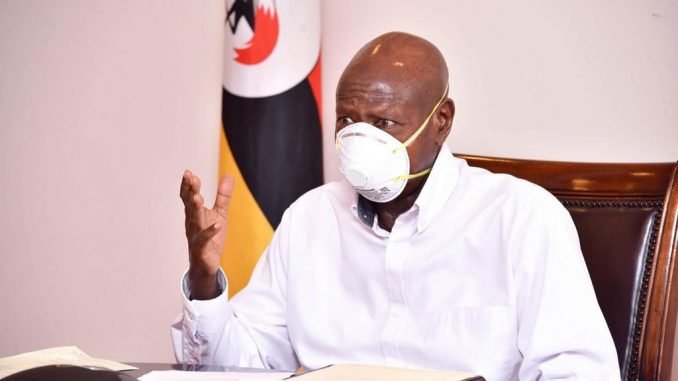
Kampala, Uganda | URN | President Yoweri Museveni has ordered all his cabinet ministers to undergo COVID-19 testing before they can be allowed to attend weekly sessions. Testing of the ministers begun Thursday 4th and continued Friday 5th at the Office of the Prime Minister.
On the first day of the exercise, a number of high profile officials reportedly tested positive for the virus and have started treatment. Their contacts, including the Prime Minister Dr Ruhakana Rugunda also went into self-isolation.
Mr. Museveni has taken various precautionary measures to protect himself from the coronavirus including sending home all non-essential staff from State House while those who stayed are limited from interacting with members of the public.
Mr. Museveni himself has limited his interaction with the public including addressing parliament for his State of the Nation Address via Zoom (video link) from the regularly sanitized and disinfected State House Entebbe.
Dr Diana Atwine, the permanent secretary of the ministry of Health says that the ministers are being tested because they are at high risk of contracting the disease since they come into close contact with many people. A total of 48 ministers will be tested every two weeks.
Emmanuel Ainebyoona, the Health ministry spokesperson says the ministers will be tested as part of a bigger plan to ensure that the government officials who interact with many people know their status.
The ministry has also been testing staff and journalists. The testing of high-risk groups of people comes at a time when the number of confirmed cases in Uganda has risen to 557.
Read Also: Uganda police intercept COVID-19 positive truck driver in Kampala
Uganda had suspended its high-risk traveller testing because the ministry says it was a waste of test kits. But Atwine says Uganda now has enough test kits and expecting over 100,000 test kits. Uganda uses the PCR test which cost $65 per kit. Government is bound to spend over $5,200 (Shs 19m) on testing the ministers.
To date, 120,000 tests have been carried, of which, 23,000 of these are from the community picked during the just concluded rapid assessment survey and around 12,000 were among high-risk travellers. Majority of the testing has been carried out among truck drivers and their contacts.



